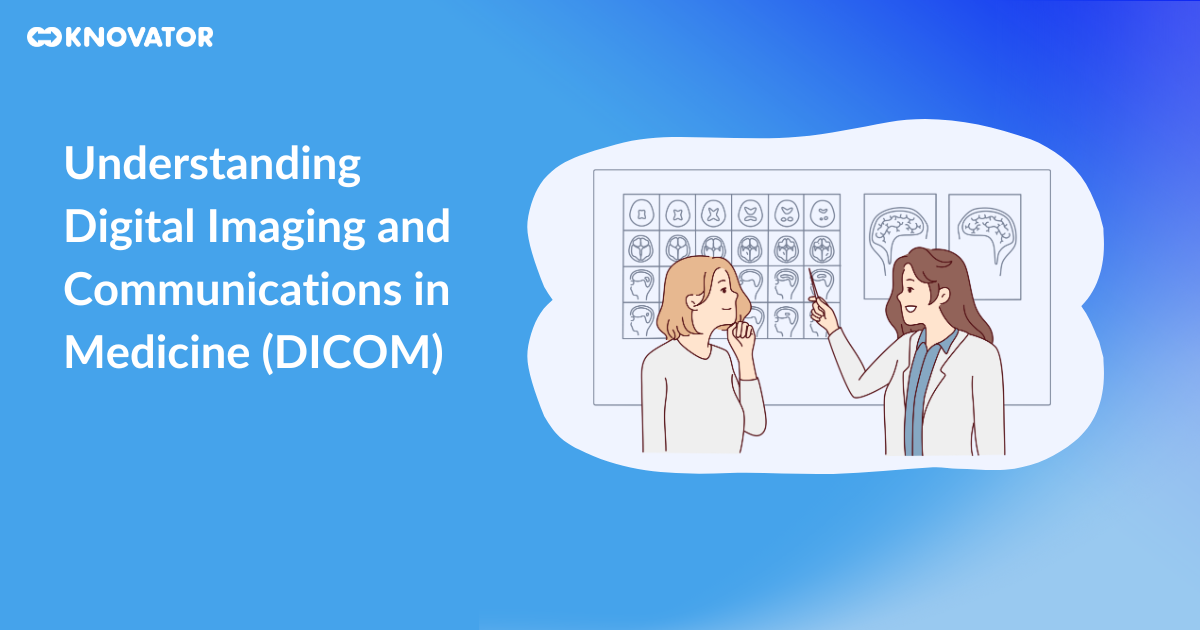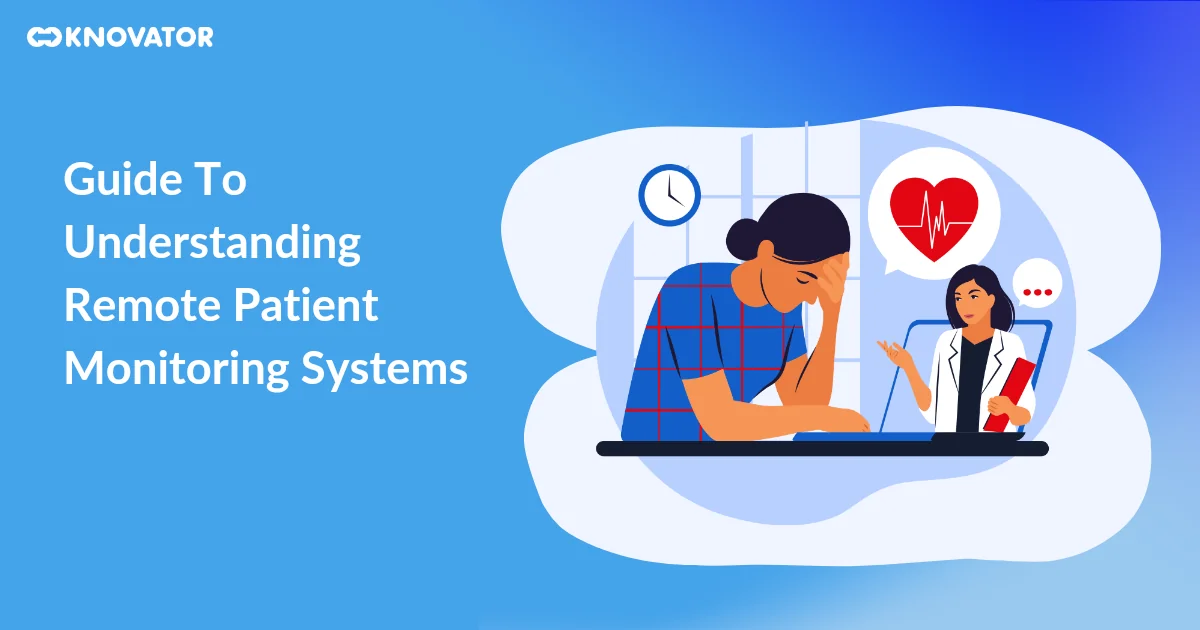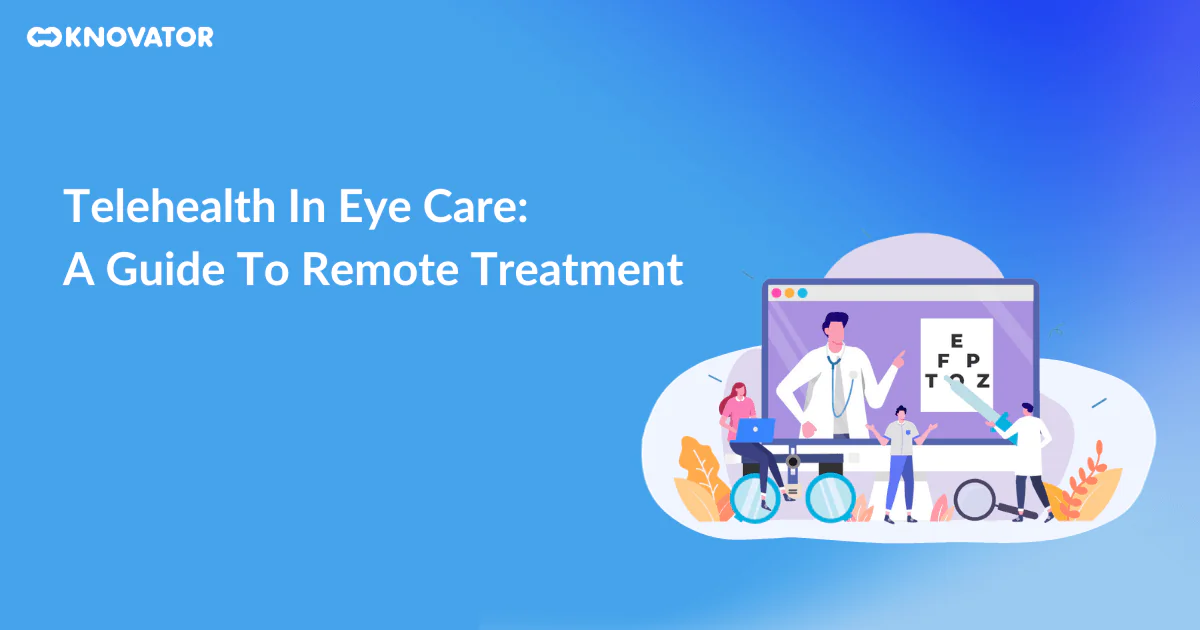The healthcare industry is constantly evolving, and cloud computing is the latest technology to be embraced by healthcare providers.
Cloud computing and healthcare complement each other, so in this blog post, we will look at the top 12 advantages of using cloud computing in healthcare. We’ll discuss how cloud computing can help improve patient care, minimize costs, and improve the efficiency of healthcare organizations.
What Is Cloud Computing & How Is It Used In Healthcare?
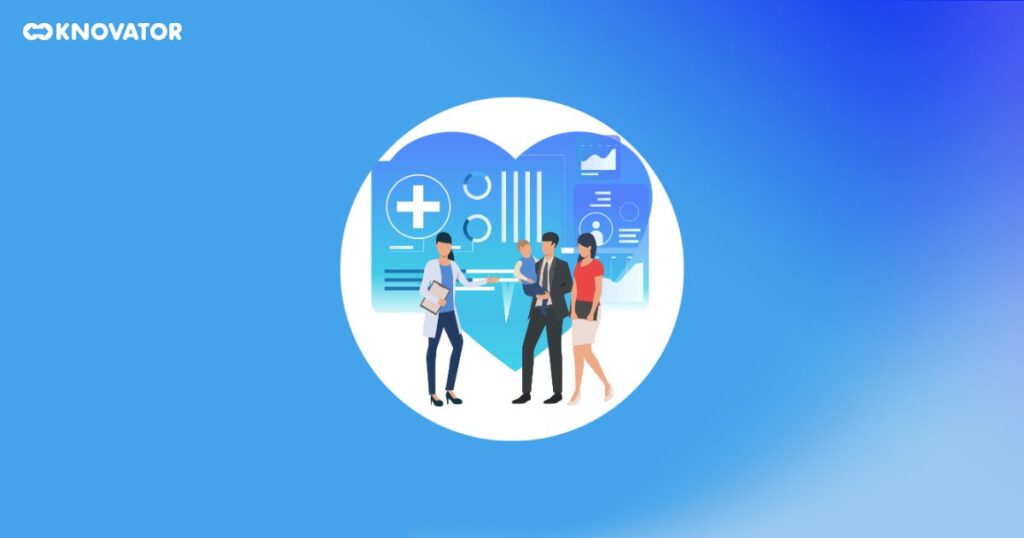 Cloud computing refers to the technology that lets you access data and software applications over the Internet without the need for local servers or storage devices.
Cloud computing refers to the technology that lets you access data and software applications over the Internet without the need for local servers or storage devices.
In healthcare, cloud computing is used to securely and efficiently store, manage, and share medical information, like electronic health records, medical images, and patient data. It allows healthcare providers to get access to patient data from anywhere, anytime, collaborate with colleagues in real-time, and make informed decisions quickly.
Cloud computing also helps to reduce healthcare costs, improve patient outcomes, and ensure better quality of care.
Advantages of Cloud Computing in Healthcare
After knowing what cloud computing is in healthcare, here are some advantages it offers:
1. Efficient Electronic Medical Record-Keeping
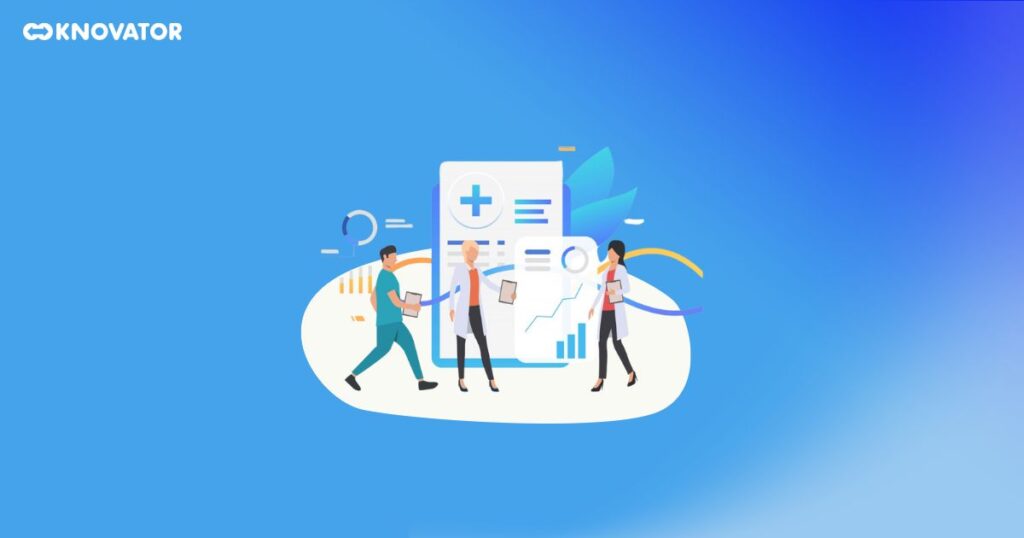 Cloud computing can potentially increase the effectiveness of EHR software in healthcare. It is achievable by providing a secure and scalable platform to store and access patient data.
Cloud computing can potentially increase the effectiveness of EHR software in healthcare. It is achievable by providing a secure and scalable platform to store and access patient data.
By digitizing records, healthcare providers can save time and money while increasing the accuracy of patient information. This eliminates the need for managing physical paperwork. Moreover, cloud computing can make it easier for them to share patient data, improving the quality of care.
2. Better Collaborative Patient Care
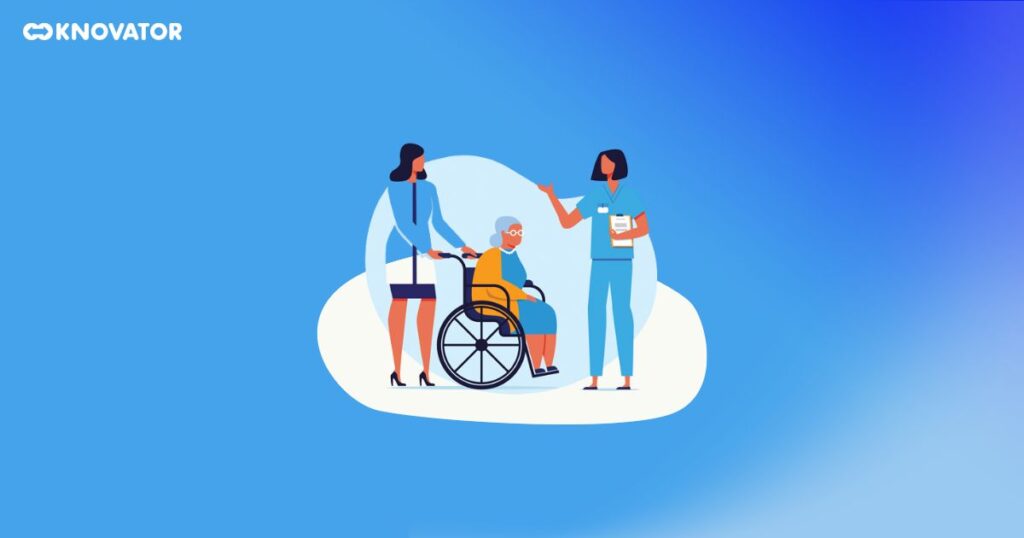 Cloud computing in healthcare can improve collaboration and communication between healthcare providers. Cloud-based healthcare systems are advantageous because doctors can access patient records and other data from any location. This allows for easier information sharing and collaboration on patient care plans.
Cloud computing in healthcare can improve collaboration and communication between healthcare providers. Cloud-based healthcare systems are advantageous because doctors can access patient records and other data from any location. This allows for easier information sharing and collaboration on patient care plans.
For instance, a patient may be seen by multiple providers. This could be a primary care physician, a specialist, or a hospitalist. With cloud computing, these providers can all access the patient’s medical records in real time. Moreover, it allows them to coordinate their care and provide the best possible care for the patient.
3. Patient-Centric Approach
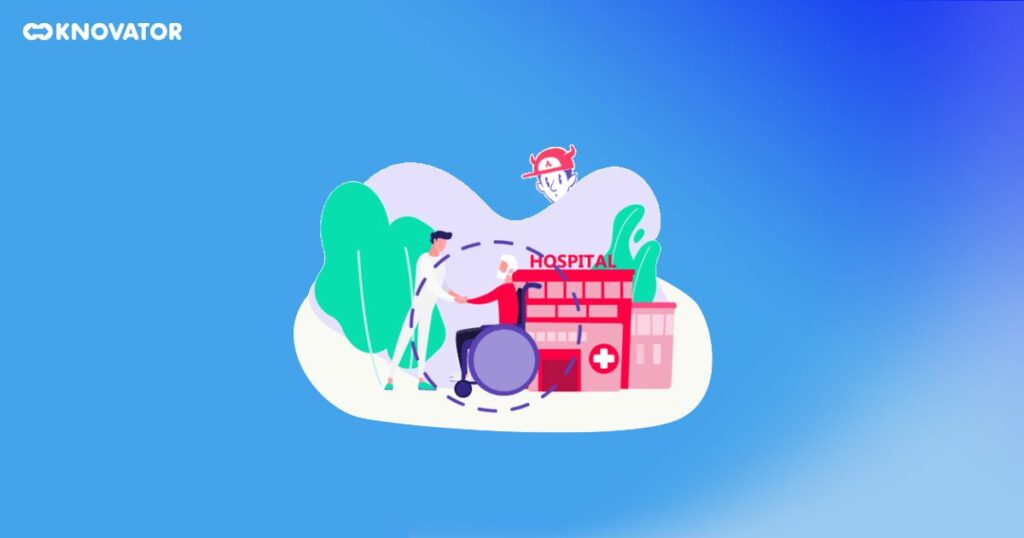 Another advantage of cloud technology in healthcare is the patient-centric approach.
Another advantage of cloud technology in healthcare is the patient-centric approach.
In healthcare, cloud technology can help focus on patients by allowing them to view their health records, book appointments, and connect with healthcare providers via the Internet.
This enables patients to be more involved in their care and take a more active role in their health. Cloud technology can also provide patients with personalized care plans and reminders, which can help improve their health outcomes.
4. Scalable Healthcare Solution
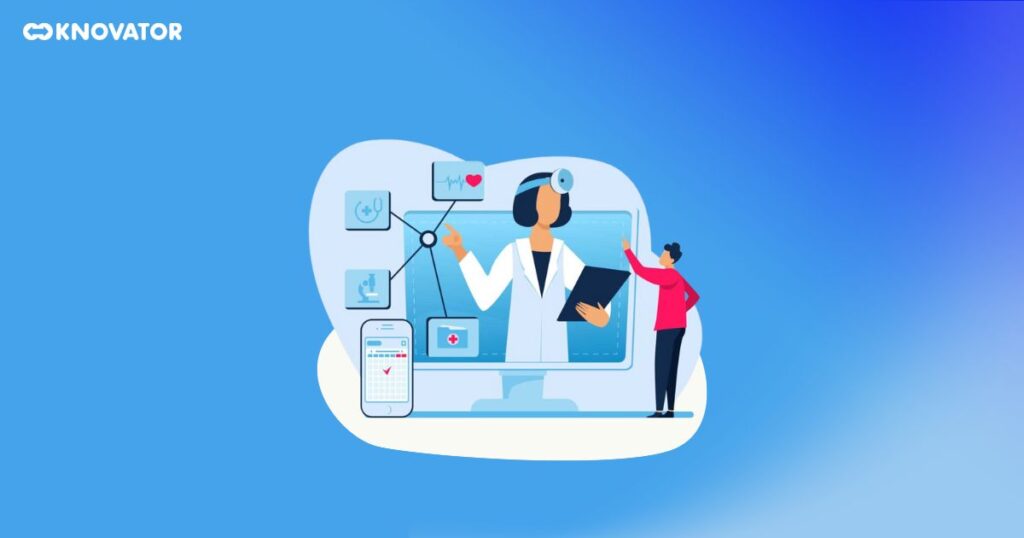 Cloud computing in hospitals may provide a scalable healthcare solution. Hospitals can quickly increase or decrease their computing resources without the need to invest in new hardware or software. This can be a significant advantage for hospitals, as it allows them to be more responsive to changes in patient demand.
Cloud computing in hospitals may provide a scalable healthcare solution. Hospitals can quickly increase or decrease their computing resources without the need to invest in new hardware or software. This can be a significant advantage for hospitals, as it allows them to be more responsive to changes in patient demand.
For example, suppose a hospital experiences a sudden influx of patients; it can quickly scale its computing resources to handle the increased workload. This can help patients get the care they need, even during peak demand.
On the other hand, if a hospital experiences a decrease in patient demand, it can easily scale down its computing resources to save money. This can help to keep the hospital’s IT costs in line with its budget.
5. Reduction in Data Storage Costs
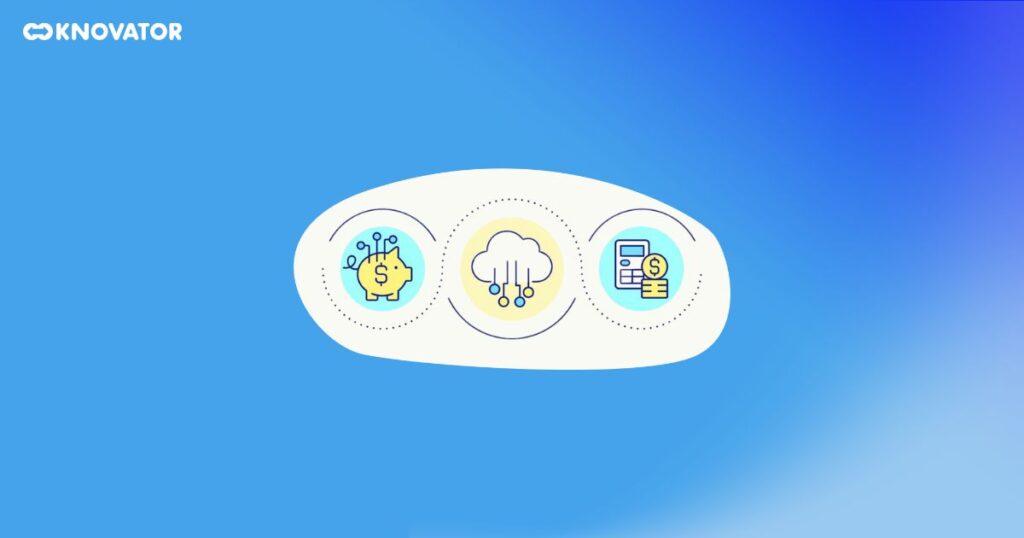 In the healthcare industry, cloud computing can reduce data storage costs. This is possible as there is no need for healthcare organizations to buy and maintain their storage infrastructure.
In the healthcare industry, cloud computing can reduce data storage costs. This is possible as there is no need for healthcare organizations to buy and maintain their storage infrastructure.
Cloud providers offer a pay-as-you-go pricing model, so healthcare organizations only pay for the storage they use. At last, it may result in substantial cost savings, particularly for organizations that produce significant amounts of data.
6. Improved Data Security
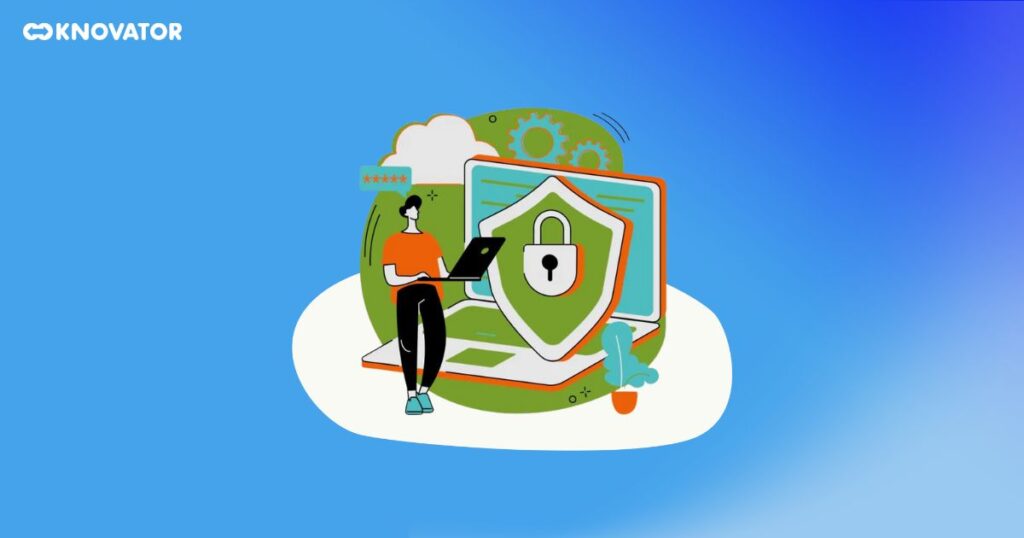 Cloud computing in healthcare can improve data security by providing several features, such as:
Cloud computing in healthcare can improve data security by providing several features, such as:
- Data encryption
It is possible to encrypt data both at rest and in transit, making it much more difficult for unauthorized users to access.
- Access control
Cloud providers can implement strict access controls so only authorized individuals can access sensitive data.
- Auditing
Cloud providers can provide detailed auditing logs so healthcare organizations can track who has accessed data and when.
- Security monitoring
Cloud providers can monitor their systems for security threats so that they can be quickly checked.
7. Use of Big Data Applications
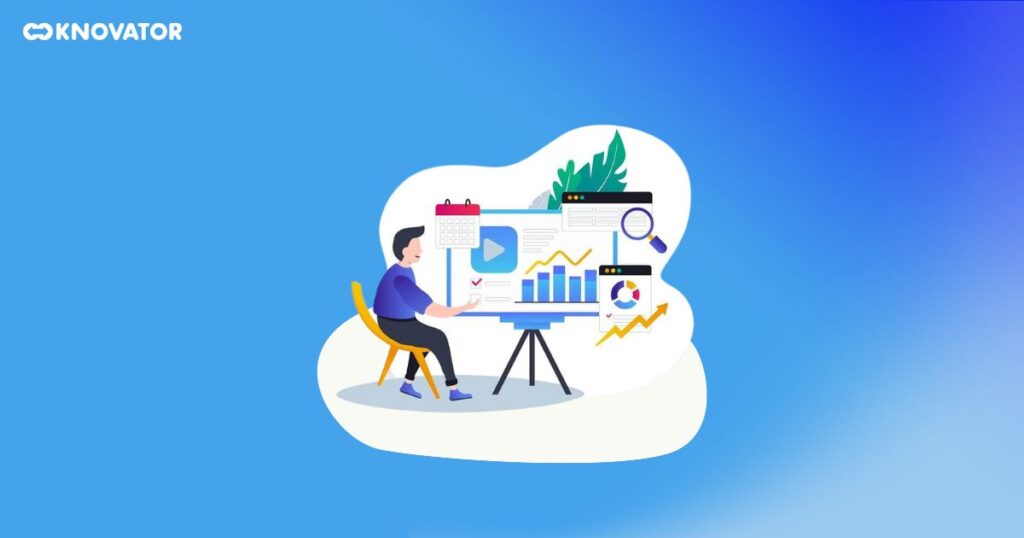 Healthcare organizations can utilize big data applications through cloud computing. This provides a secure and expandable platform for storing and analyzing vast data.
Healthcare organizations can utilize big data applications through cloud computing. This provides a secure and expandable platform for storing and analyzing vast data.
Let’s look at some specific examples of how cloud computing is being used to enable big data applications in healthcare:
- Predictive analytics
Cloud-based predictive analytics can help predict patient outcomes, identify at-risk patients, and suggest preventive care.
- Machine learning
Cloud-based machine learning applications can create better medical treatments, improve doctors’ decisions, and customize patient care.
- Natural language processing
Cloud-based natural language processing applications can extract insights from unstructured data, such as medical records and clinical notes.
8. Flexibility and Scale Easily
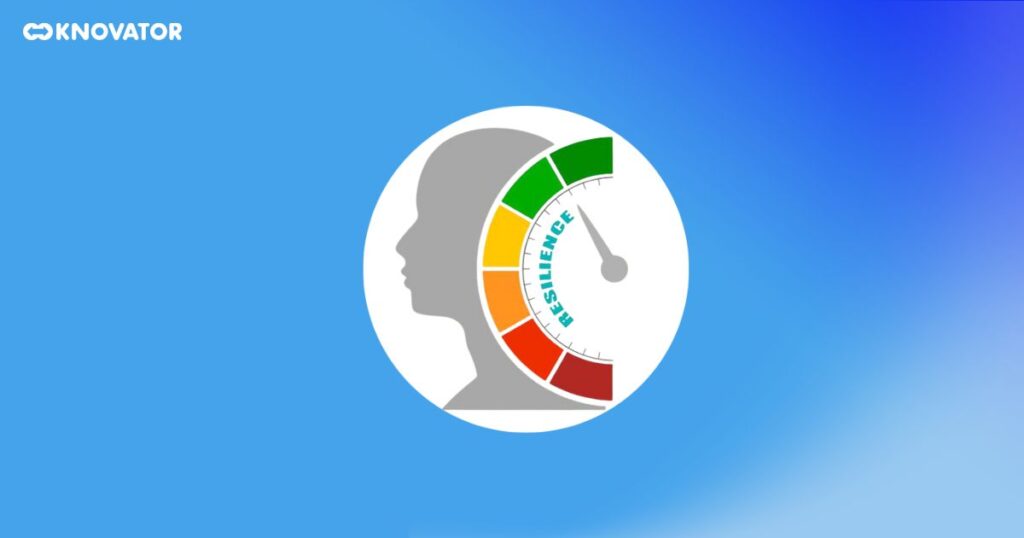 Cloud-based solutions offer healthcare organizations flexibility and scalability in their data storage needs. This is because cloud providers use economies of scale to drive down data management costs and offer a pay-as-you-go cost structure.
Cloud-based solutions offer healthcare organizations flexibility and scalability in their data storage needs. This is because cloud providers use economies of scale to drive down data management costs and offer a pay-as-you-go cost structure.
Simply speaking, it means that healthcare organizations only pay for the data storage they need. Moreover, as you already saw, they can scale up or down their storage capacity required. This flexibility can save healthcare organizations money in the long run and allows them to better meet their patients’ changing needs.
9. Improved Patient Safety
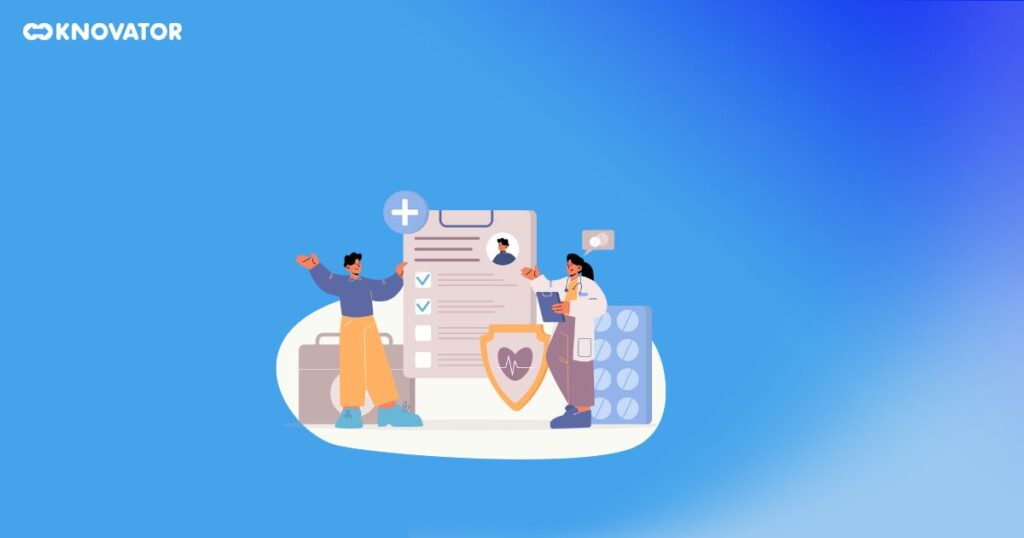 Medical cloud computing can improve patient safety by providing real-time access to patient records. This allows healthcare providers to collaborate effectively and reduces the risk of medication errors.
Medical cloud computing can improve patient safety by providing real-time access to patient records. This allows healthcare providers to collaborate effectively and reduces the risk of medication errors.
For instance, suppose multiple providers at different facilities see a patient. In that case, their medical cloud records can be easily accessed by all of them, ensuring the patient gets the right care.
Further, medical cloud computing can store and analyze patient data, which can help identify potential risks and prevent untoward events.
10. Data based Decision Making
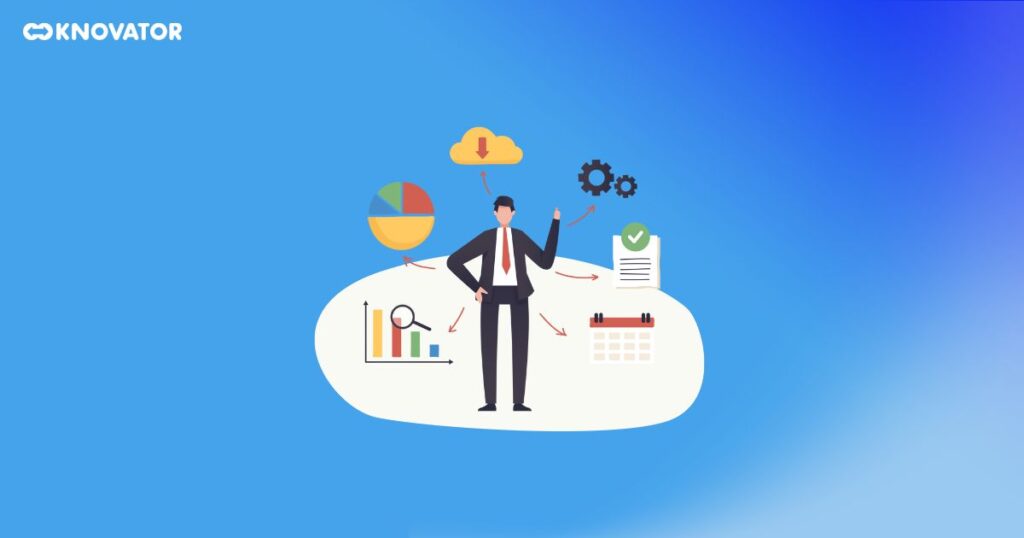 Healthcare organizations can benefit from cloud computing as it provides a secure and adaptable platform to store and analyze vast amounts of data. This data finds its use in enhancing patient care, identifying high-risk patients, and optimizing resource allocation. In addition, cloud computing can improve the collaboration between healthcare providers, leading to better decision-making.
Healthcare organizations can benefit from cloud computing as it provides a secure and adaptable platform to store and analyze vast amounts of data. This data finds its use in enhancing patient care, identifying high-risk patients, and optimizing resource allocation. In addition, cloud computing can improve the collaboration between healthcare providers, leading to better decision-making.
11. Better Medical Research
 Cloud computing in healthcare has revolutionized the way medical research is conducted. In the past, researchers who wanted to analyze large data sets had to wait weeks to access supercomputers. This was a major bottleneck in the research process, and it often meant that researchers had to make do with smaller data sets, which could lead to less accurate results.
Cloud computing in healthcare has revolutionized the way medical research is conducted. In the past, researchers who wanted to analyze large data sets had to wait weeks to access supercomputers. This was a major bottleneck in the research process, and it often meant that researchers had to make do with smaller data sets, which could lead to less accurate results.
With cloud computing, researchers can now access supercomputer-like analytical power at a fraction of the cost. This has led to a dramatic increase in the scale and complexity of medical research. Moreover, it has helped researchers make new discoveries that would not have been possible.
12. Enables Data Interoperability
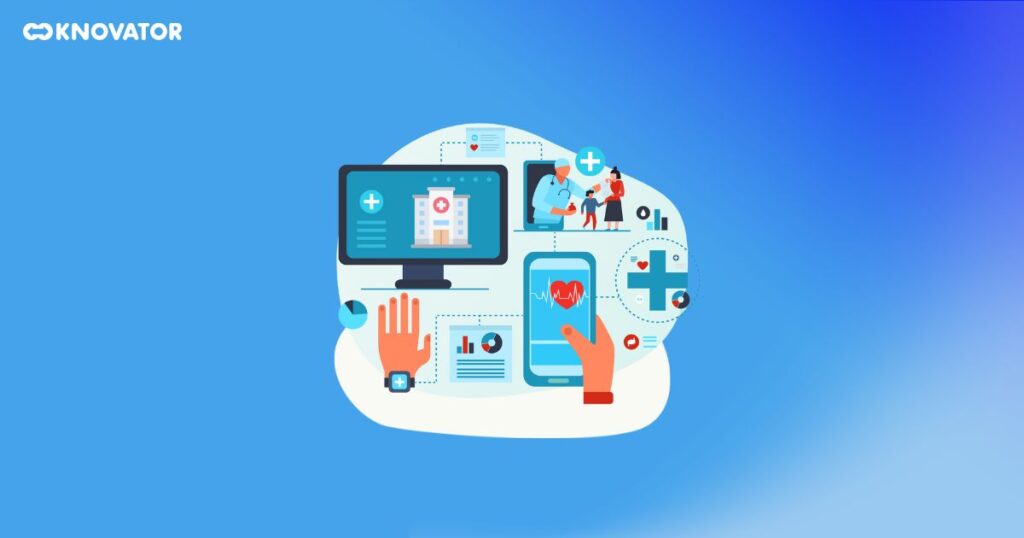 Data interoperability is the ability of various software applications and systems to communicate with one another and exchange data. This is a critical challenge in healthcare, as it enables the seamless sharing of patient data between different providers and organizations.
Data interoperability is the ability of various software applications and systems to communicate with one another and exchange data. This is a critical challenge in healthcare, as it enables the seamless sharing of patient data between different providers and organizations.
Using cloud computing for healthcare can make sharing information easier for different programs and systems. This is because they can use standard formats and protocols to communicate with each other.
As a result, cloud computing can help improve healthcare delivery efficiency and effectiveness. It can help:
- Improve the coordination of care between various healthcare providers
- Facilitate the sharing of patient data for research purposes
- Enable the development of new healthcare applications and services
Future of Cloud Computing in Healthcare
Cloud computing has brought a revolution in the healthcare industry by offering numerous benefits, such as enhanced data security, cost savings, and improved patient care. With cloud computing, healthcare providers can store, manage, and share patient data seamlessly, enabling them to offer personalized care to their patients.
Moreover, cloud computing in the healthcare industry has significantly reduced the cost of healthcare services, making them more accessible to patients. It has also facilitated remote patient monitoring, enabling healthcare providers to monitor patients’ health and enable timely interventions. In conclusion, cloud computing in medicine has transformed the industry, making it more efficient, cost-effective, and patient-centric.




